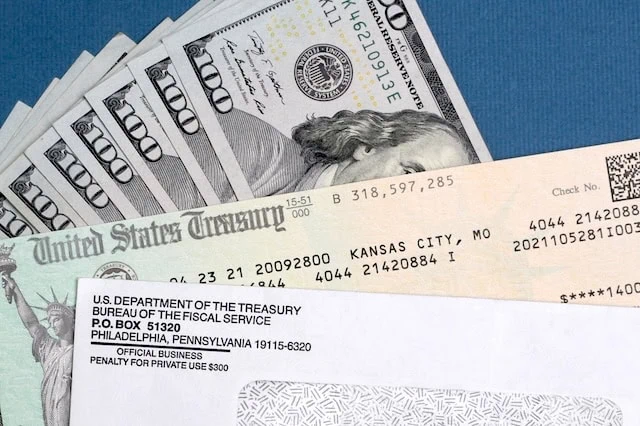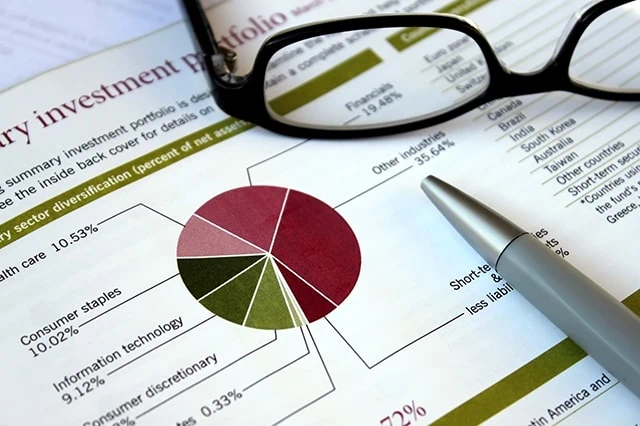The broad-strokes timing of a basic retirement plan is fairly straightforward. You save up until the point at which, combined with Social Security and other income sources, you should have enough money to live off for the rest of your life.
The exact timing can vary for any number of reasons, usually linked to unknown variables. But the closer you get to your rough retirement age range, the more you scrutinize whether you’re as ready as you need to be.
So if you’re at the point where you believe retirement is a year or less away, you should be very close to your goals and have much of your financial planning already mapped out.
But do you? That’s what I’m going to explore today. Read on as I run you through five aspects of retirement planning that you should have mapped out before you pull the trigger. If you don’t have even one of these retirement planning standards cemented, you’ll certainly want to get started—and you might even want to reconsider your retirement timing.
Are You Sure You’re Ready to Retire?

Retirement can be a wonderful chapter of adults’ lives. You might be itching to have more free time to travel, visit with your family, or get more involved with your hobbies.
But if you can at all help it, you should avoid jumping into retirement until you’re 90%-100% sure you’re ready.
Retirement isn’t just a financial decision, after all—it’s an emotional one, too, though the former can certainly affect the latter. So in addition to the financial concerns I’ll talk about today, you’ll also want to give yourself a mental gut-check and really think about whether you’re psychologically and emotionally ready to leave the workforce within the next year.
(And don’t worry if you’re not. Even if you don’t want to fully put off retirement, simply easing into retirement could be an option for you.)
Do you want to get serious about saving and planning for retirement? Sign up for Retire With Riley, Young and the Invested’s free retirement planning newsletter.
Ready for Retirement? Only If You Know These 5 Things

OK, technically, there are six things you absolutely need to know—in addition to the five things I’m about to discuss with you, you’ll also need to know how close you are to your “retirement number.”
In short, if your retirement plan says you need $1 million in savings before you can retire, and you have $250,000 stashed away, you’re not ready for retirement. If you’re a few hundred dollars short, you can adjust pretty easily, whether that’s by working an extra month or two, or paring back your retirement budget by a few dollars per month.
It’s pretty obvious, so I won’t dwell on it.
Instead, I want to highlight five other things you need to know to consider yourself retirement-ready sometime in the next year or so.
1. Your Health Care Coverage Options and Costs

Plenty of things are cheaper when you retire, but health care isn’t one of them.
Yes, even with Medicare, retiree health expenses tend to be pricey. Original Medicare doesn’t cover everything, for one. You’ll also need to worry about deductibles, expenses, out-of-pocket costs, not to mention other items people frequently forget to budget for, such as over-the-counter (OTC) medicine and supplies (like cold and allergy medicines, laxatives, and bandages), aging-in-place purchases (changing knobs to handles, grab rails for the bathroom), and long-term care.
Speaking of which: How up-to-date are you on your Medicare know-how? Do you know what Medicare “Parts” you’ll need? Do you plan on going with Original Medicare or Medicare Advantage plans? Do you know the difference? Are you going to apply for Medicaid, too? Early retirees don’t get a pass, either. If you’re dropping your workplace plan before you qualify for Medicare, your health insurance options are wide-ranging … but not exactly ideal.
In short, before you retire, you need to have an idea of how much to budget for health care costs, and you almost certainly need to know about Medicare. If you do? Great. If not, check out our primers on health care costs in retirement and the types of Medicare coverage.
Related: What Are the Average Retirement Savings By Age?
2. How Much Social Security You’ll Collect

How important this question is largely depends on how much you’ve saved. For some retirees, Social Security paychecks are a cherry on top of their investment withdrawals. For others, though, Social Security is a major portion of their retirement income.
If you’re more so in the latter bucket than the former, you’ll want to have a very good idea of how much your Social Security check will be when you hang up your stapler.
If you’re retiring before your full retirement age (FRA), you’re going to get a reduced benefit for the rest of your life. You only get your “full” benefit if you retire at or after FRA … and in fact, if you continue working a few years, you can actually earn “delayed retirement credits” until you reach age 70. These delayed retirement credits increase the amount of your benefit once you retire.
One’s full retirement age depends on their birth year:
- Born between 1943 to 1954: 66
- Born in 1955: 66 and 2 months
- Born in 1956: 66 and 4 months
- Born in 1957: 66 and 6 months
- Born in 1958: 66 and 8 months
- Born in 1959: 66 and 10 months
- Born in 1960 or later: 67
If you know how much to expect from Social Security, you’re in good shape. If you don’t know, here’s our guide to determining how much Social Security you can expect to receive, an explainer of how Social Security timing affects your benefits, and information about Social Security spousal benefits.
Related: RMDs Too High? 6 Ways to Reduce Them at Age 73
3. Whether You’re Carrying Debt Into Retirement

Many people pledge to be debt-free by the time they reach retirement. It’s an admirable goal, but not necessarily a feasible one.
Consider two retirees who are currently looking at a couple years’ worth of mortgage payments heading into retirement.
- The first retiree’s mortgage carries a particularly high interest rate, and they’re constantly stressed about the pressure of having a mortgage. It might make sense to pull the financial levers necessary to pay off that mortgage early—even if that means, say, paying off the mortgage by downsizing into a smaller house and using the excess returns from the sale of their current house to finish off the mortgage, or even just accepting a leaner retirement budget for their first couple of years. An early payoff could be both financially sound and a psychological lift.
- The second retiree has a low-interest-rate mortgage and they’re also behind on their retirement savings. They might benefit more from continuing their monthly mortgage payments and instead putting all available cash into catch-up contributions so that money can grow, giving them a better chance of making it through retirement with their nest egg intact.
All debt isn’t the same, of course—a low-interest mortgage is very different from high-interest credit card debt. So you need to evaluate your debt carefully and determine whether it makes sense to hold it into retirement yet.
However, if you haven’t begun to even think about your debt situation, you might not be as ready for retirement as you thought you were.
Related: Plan for These 7 Hidden Retirement Costs
4. Your Retirement Asset Allocation

Ideally, you or a financial advisor has been regularly adjusting your investment portfolio throughout your investing career. Your portfolio should look different as you age. Generally, as one gets older (and thus closer to retirement), asset allocation becomes a bit more conservative, while still keeping one’s personal risk tolerance in mind.
You don’t need to know the exact dollar amount you’ll have invested in each fund on your retirement date. Markets change, people change, and needs change. But you should have a solid idea of what your general allocation path to (and after) retirement looks like.
Especially as you get very close to retirement, you need to understand how vulnerable you are to “sequence-of-returns” risk. In other words: What will your retirement look like if ugly market conditions pop up right before you retire or in your first couple years of retirement? Will your nest egg still make it 30 years? 25? 20? Less?
The time horizon of those funds also plays a part. The “retirement buckets” strategy looks at retirement savings through short-, medium-, and long-term lenses, which helps determine the appropriate asset allocations for each portion of your funds.
If you’re not sure even generally what your asset allocation will look like at and into retirement, and/or if you determine you face a pretty high sequence-of-returns risk, you might consider delaying your retirement.
Related: 10 Senior Discounts for Restaurants + Grocery Stores
5. Your Withdrawal Strategy

If withdrawals from a retirement account, such as a 401(k) or IRA, will make up a significant portion of your retirement income, you’d better have a great idea of how you plan on withdrawing that money.
A retirement withdrawal strategy dictates the general rules around how much money you withdraw, usually from year to year but sometimes even month to month. Some strategies consider outside factors such as stock-market performance and inflation, while others skate right by them.
Your strategy will also need to address other questions:
For instance, are you withdrawing from one account, or several? If the latter, do those accounts have different tax treatments—is one a traditional 401(k) that’s taxed upon withdrawal, while the other is a Roth IRA with tax-free withdrawals? Strategic withdrawals could substantially affect your tax burden each year. Also, are you concerned with reducing your required minimum distributions (RMDs)?
If you have a retirement withdrawal strategy in place, you’ve got an important piece of the puzzle figured out. If not, you’ll want to check out our primer on retirement withdrawal strategies … and consider talking to a financial advisor sooner rather than later.
Want to talk more about your financial goals or concerns? Our services include comprehensive financial planning, investment management, estate planning, taxes, and more! Schedule a call with Riley to discuss what you need, and what we can do for you.







![How Much to Save for Retirement by Age Group [Get on Track] 19 how much to save for retirement by age group](https://youngandtheinvested.com/wp-content/uploads/how-much-to-save-for-retirement-by-age-group-600x403.webp)

